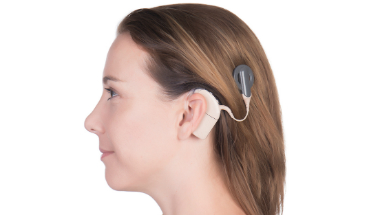Hundreds more children and adults eligible for cochlear implants on the NHS
4 Jan 2019 11:54 AM
Hundreds more people with severe to profound deafness are expected to be eligible for cochlear implants each year, due to updated NICE guidance.

The update comes after a review of the definition of severe to profound deafness which is used to identify if a cochlear implant might be appropriate.
Meindert Boysen, director of the Centre for Technology Evaluation, said: “The appraisal committee listened to stakeholder concerns regarding the eligibility criteria for cochlear implants being out of date. Upon review it was concluded this needed to be updated.
“The new eligibility criteria for cochlear implants will ensure that they continue to be available on the NHS to those individuals who will benefit from them the most.”
Severe to profound deafness is now recognised as only hearing sounds louder than 80dB HL at 2 or more frequencies without hearing aids, a lowering of the previous threshold.
A cochlear implant works by picking up sounds which are turned into electrical signals and are sent to the brain. This provides a sensation of hearing, but does not restore hearing.
NHS organisations should compare their current practice with our recommendations and consider what changes may need to be made to put them into practice. In considering any changes, they will need to take into account any extra costs and savings involved. The speed at which these recommendations are adopted by local NHS services will depend on the resources they have available and the other priorities they are dealing with.